Charlotte Hess, Elinor Ostrom (eds.): Understanding Knowledge as a Commons: From Theory to Practice (2006)
Filed under book | Tags: · archive, collaboration, commons, democracy, economics, education, fair use, floss, free software, governance, intellectual property, knowledge, library, networks, open access, participation, patents, property rights, public domain, publishing, research, scholarship, technology

“Knowledge in digital form offers unprecedented access to information through the Internet but at the same time is subject to ever-greater restrictions through intellectual property legislation, overpatenting, licensing, overpricing, and lack of preservation. Looking at knowledge as a commons—as a shared resource—allows us to understand both its limitless possibilities and what threatens it. In Understanding Knowledge as a Commons, experts from a range of disciplines discuss the knowledge commons in the digital era—how to conceptualize it, protect it, and build it.
Contributors consider the concept of the commons historically and offer an analytical framework for understanding knowledge as a shared social-ecological system. They look at ways to guard against enclosure of the knowledge commons, considering, among other topics, the role of research libraries, the advantages of making scholarly material available outside the academy, and the problem of disappearing Web pages. They discuss the role of intellectual property in a new knowledge commons, the open access movement (including possible funding models for scholarly publications), the development of associational commons, the application of a free/open source framework to scientific knowledge, and the effect on scholarly communication of collaborative communities within academia, and offer a case study of EconPort, an open access, open source digital library for students and researchers in microeconomics. The essays clarify critical issues that arise within these new types of commons—and offer guideposts for future theory and practice.”
Contributors: David Bollier, James Boyle, James C. Cox, Shubha Ghosh, Charlotte Hess, Nancy Kranich, Peter Levine, Wendy Pradt Lougee, Elinor Ostrom, Charles Schweik, Peter Suber, J. Todd Swarthout, Donald Waters
Publisher MIT Press, 2006
ISBN 0262083574, 9780262083577
367 pages
PDF, PDF (updated on 2013-5-14)
Comment (0)Tara Brabazon: The University of Google: Education in the (Post) Information Age (2007)
Filed under book | Tags: · education, knowledge economy, literacy

Looking at schools and universities, it is difficult to pinpoint when education, teaching and learning started to haemorrhage purpose, aspiration and function. Libraries and librarians have been starved of funding. Teachers cram their curriculum with ‘skill development’ and ‘generic competencies’ because knowledge, creativity and originality are too expensive to provide to unmotivated students and parents obsessed with league tables, not learning.
Meanwhile, the internet offers a glut of information on everything-under-the-sun, a mere mouse-click away. Bored surfers fill their cursors and minds with irrelevancies. We lose the capacity to sift, discard and judge. Information is no longer for social good, but for sale.
Tara Brabazon argues that this information fetish has been profoundly damaging to our learning institutions and to the ambitions of our students and educators. In The University of Google she projects a defiant and passionate vision of education as a pathway to renewal, where research is based on searching and students are on a journey through knowledge, rather than consumers in the shopping centre of cheap ideas.
Angry, humorous and practical in equal measure, The University of Google is based on real teaching experience and on years of engaged and sometimes exasperated reflection on it. It is far from a luddite critique of the information age. Tara Brabazon celebrates the possibilities of digital platforms in education, but deplores the consequences of placing funding on technology and not teachers. In doing so, she opens a new debate on how to make our educational system both productive and provocative in the (post-) information age.
Contents: Introduction; Living (in the) Post. Section 1 Literacy: BA (Google): graduating to information literacy; Digital Eloi and analogue Morlocks. Section 2 Culture: Stretching flexible learning; An i-diot’s guide to i-lectures; Popular culture and the sensuality of education. Section 3 Critique: Exploiting knowledge?; Deglobalizing education; Burning towers and smoldering truth: September 11 and the changes to critical literacy. Conclusion: The gift: why education matters; Select bibliography; Index.
Publisher Ashgate Publishing, Ltd., 2007
ISBN 075467097X, 9780754670971
Length 234 pages
Keywords and phrases
critical literacy, iPod, Murdoch University, knowledge economy, World Wide Web, student-centred learning, Morlocks, neo-liberalism, Western Australia, September 11, multimedia literacies, yoga, Google, Postmodern, asanas, Fordist, creative industries, Citizendium, post-Fordism, i-lecture
More info (publisher)
More info (google books)
Chto delat / What is to be done?, 38+ nos. (2003-) [Russian, English]
Filed under magazine | Tags: · activism, art, art criticism, capitalism, communism, critique, education, film, labour, literature, politics, theory
“Chto delat/What is to be done? was founded in early 2003 in Petersburg by a workgroup of artists, critics, philosophers, and writers from Petersburg, Moscow, and Nizhny Novgorod (see full list of participants on the web site) with the goal of merging political theory, art, and activism.
Since then, Chto delat has been publishing an English-Russian newspaper on issues central to engaged culture, with a special focus on the relationship between a repoliticization of Russian intellectual culture and its broader international context. These newspapers are usually produced in the context of collective initiatives such as art projects or conferences.”

Issue 1, August 2003
Realised in the framework of the festival of contemporary art “Artkliazma”, 29.08 – 07.09.2003
HTML

Autonomous Zones
Issue 2, September 2003
Realised in the framework of “Rohto” project /28.10-14.09.2003, at Central Exhibition Hall/
HTML

Emancipation from/of Labour
Issue 3, 2004
Realised as a part of an art project by Dmitry Vilensky “Negation of Negation” in a frame of the exhibition “Faster than History”, The Museum of Contemporary Art KIASMA, 2004
HTML

The International Now-here
Issue 4, April 2004
HTML

Love & Politics
Issue 5, May 2004
Realized in the framework of the exhibition “Watch Out! Art from Moscow and St. Petersburg”, Oslo, 27.05-05.09.2004
HTML

Revolution or Resistance?
Issue 6, August 2004
Realized in the framework of the festivals: Nordic & Russian Poetry, Art & Film Event “Swinging With Neighbours” in Stockholm 17-23rd of August, 2004, and “Art Kljazma” festival, Moscow
HTML

Drift. Narvskaja Zastava
Issue 7, September 2004
Realized in the framework of the festival Contemporary Art in Traditional Museums, St Petersburg, 25.09.-25.10.2004
HTML

State of Emergency
Issue 8, January 2005
Realized in the framework of conference “Klartext! The Status of Political in Contemporary Art and Culture”, January 14-16, 2005, Kunstlerhaus Bethanien and Volksbuhne, Berlin
HTML

What Do We Have in Common?
Issue 9, May 2005
This publication is part of the exhibition project “The Builders” realized on the occasion of the exhibition Collective Creativity, at Kunsthalle Fridericianum Kassel, from May 1 – July 17, 2005
HTML

How Do Politics Begin?
Issue 10, September 2005
HTML (Part 1), HTML (Part 2)

Why Brecht?
Issue 11, January 2006
Realized in the framework of exhibition “Capital” (It Fails Us Now) /07.01.-15.02.2006/, Kunstihoone, Tallinn, Estonia with the generous support of the NIFCA.
HTML

(Im)possible Spaces
Issue 12, March 2006
Realized in a frame of the exhibition “Contested Spaces in Post-Soviet Art” at Sidney Mishkin Gallery, New York / 24.03. 2006 – 26.04.2006/
HTML

Culture and Protest. Another Power is Possible
Issue 13, July 2006
Realized in the framework of the 2nd Russian Social Forum during the G-8 Summit in Petersburg.
HTML

Self-Education
Issue 14, September 2006
Realized in the framework of the exhibition “Self-Education” at the State Center for Contemporary art, 06.09.-30.09.2006
HTML

Reactionary Times
Issue 15, February 2007
Appeared in the framework of documenta 12 magazines, a collective editorial project linking worldwide over 80 print and on-line periodicals, as well as other media.
HTML

Potentialities Beyond Political Sadness
Issue 16, March 2007
Realized in collaboration with and funded in part by the “Space for Actualisation”, Hamburg and with the support of the Iaspis International Artists’ Studio Program in Sweden
HTML

Debates on the Avant-Garde
Issue 17, August 2007
Co-produced by WorkMethod, Paris, with the support of American Center Foundation, and Frac Ile-de-France/Le Plateau, Paris in the context of the project “Société Anonyme”.
HTML

Becoming a Mother. The work of care in contemporary capitalism
Special issue, November 2007
Realised in framework of the exhibition “Becoming a mother” that took place at Botkyrka Konsthall from 24 November 2007 till 1 March 2008 with the support from Labyrint Press and Swedish Institute.
HTML

Basta!
Special issue, February 2008
HTML, PDF

Critique and Truth
Issue 18, March 2008
Published on the occasion of the exhibition “Have the Cake and Eat It, Too. Institutionskritik als instituierende Praxis”, March 13-April 19, 2008, Kunsthalle Exnergasse Vienna (http://www.wuk.at/kunsthalle). from 24 November 2007 till 1 March 2008 with the support from Labyrint Press and Swedish Institute
HTML

Knowledge in Action
Special issue, September 2008
Published in collaboration with Street University on the occasion of the European Social Forum 2008 in Malmö, September 17-21, 2008, (http://www.esf2008.org/).
HTML

What Does it Mean to Lose? The Experience of Perestroika
Issue 19, September 2008
Produced on collaboration with U-TURN Quadrennial for Contemporary Art with the support of the Culture Programme of the European Union and Kulturkontakt Nord.
HTML, PDF

When Artists Struggle Together
Special issue, November 2008
HTML, PDF

What is the Use of Art?
Issue 25, March 2009
Published on the occasion of the exhibition project realised by Chto delat workgroup ‘Plug In #51: Activist Club’ at the Van Abbemuseum, Eindhoven
HTML, PDF

Another Commons: Living / Knowledge / Act
Issue 26, 2009
HTML

The Great Method
Issue 27, September 2009
HTML, PDF

Make Film Politically. Contemporary Filmmaking and the Soviet Avant-Garde
Special issue (later as Issue 28), September 2007
Published in framework of the exhibition “Electrification of the brains” that took place from 21 September to 3 November 2007 in Dresden.
HTML, PDF

Transitional Justice
Special issue, November 2009
HTML, PDF

Whose City Is This?
Issue 29, August 2010
HTML, PDF
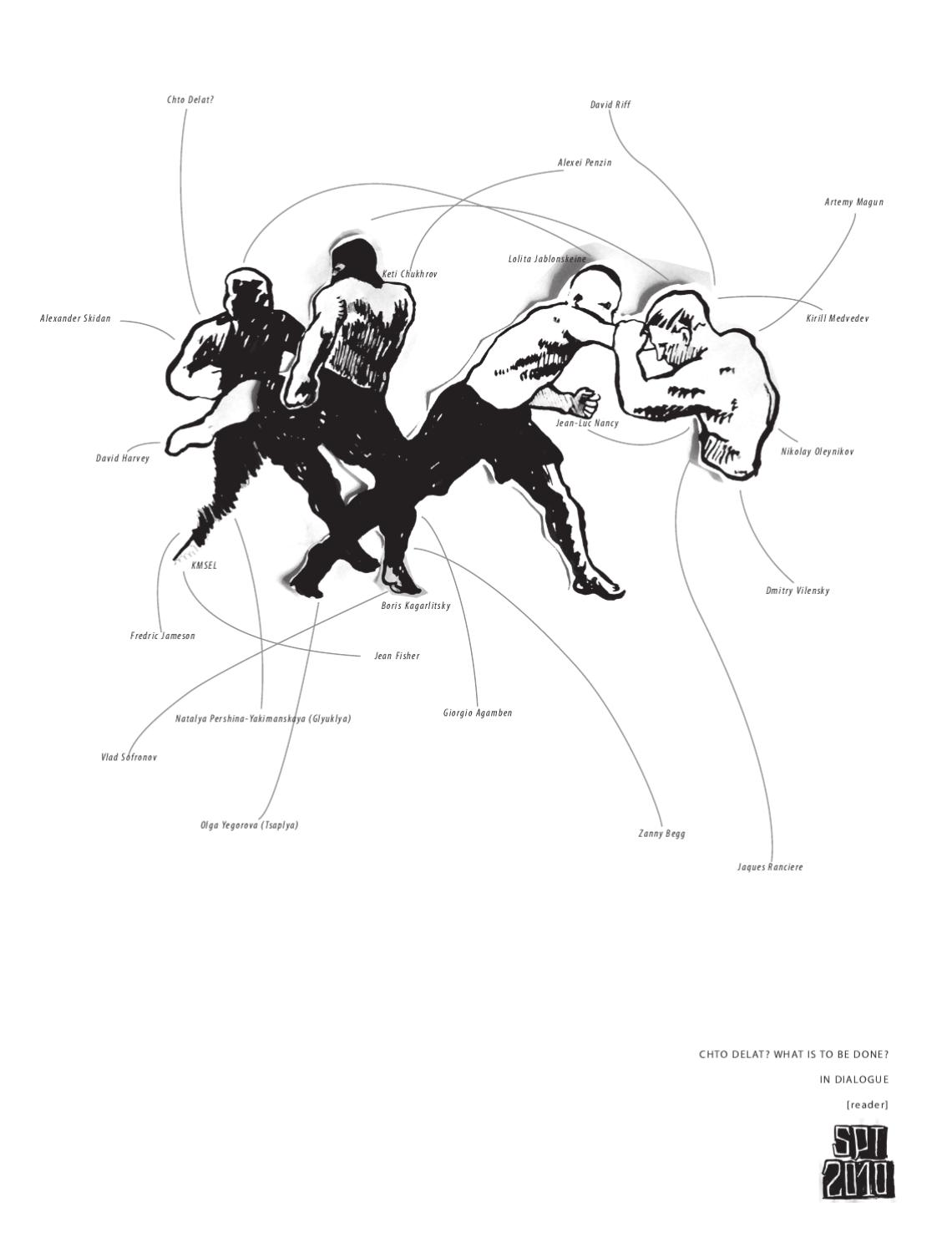
Chto delat? What is to be Done? In Dialogue [reader]
Special issue, September 2010
Published on occasion of the exhibition project What is to be done? … the urgent need to struggle at ICA, London (9 Sep-24 Oct 2010).
PDF

Living, Thinking, Acting politically
Issue 30, 2010
A brief analysis of the 48-Hour Communal Life Seminars
HTML, Issuu

Tragedy or Farce?
Issue 31, December 2010
HTML, PDF
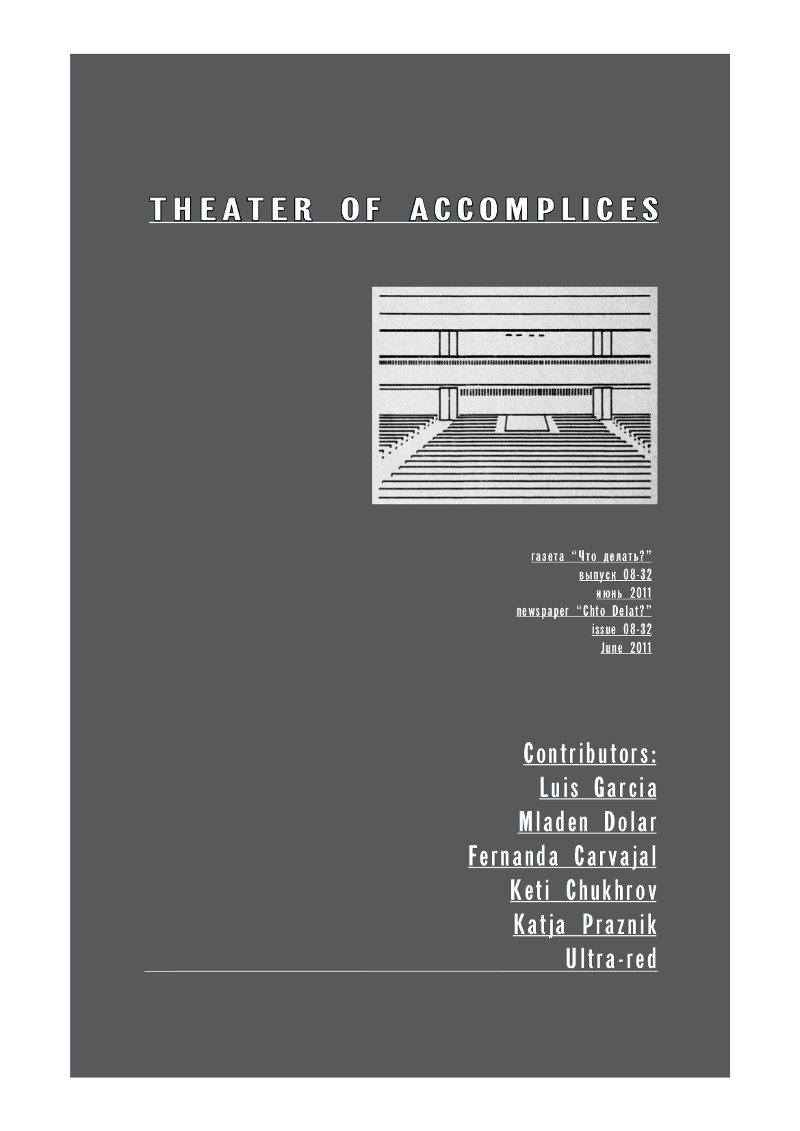
Theater of Accomplices
Issue 32, June 2011
HTML, PDF

Against Slavery
Issue 33, October 2011
HTML, PDF

In Defence of Representation
Issue 34, March 2012
HTML, PDF
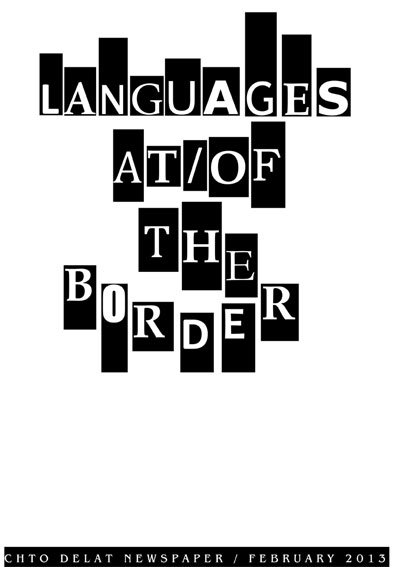
Language at/of the Border
Issue 35, February 2013
“The idea for this issue arose when we begin working on our film A Border Musical, whose screenplay is also printed here. This film is based on a study of the situation on both sides of the Russian-Norwegian border: we were interested in how a range of differences, which inevitably serve as sources of conflict in border areas, shape the subjectivity of people in daily contact with each other.” (from the Editorial)
Published on the occasion of the Barents Spectacle 2013 in collaboration with Border Aesthetics.
HTML, PDF
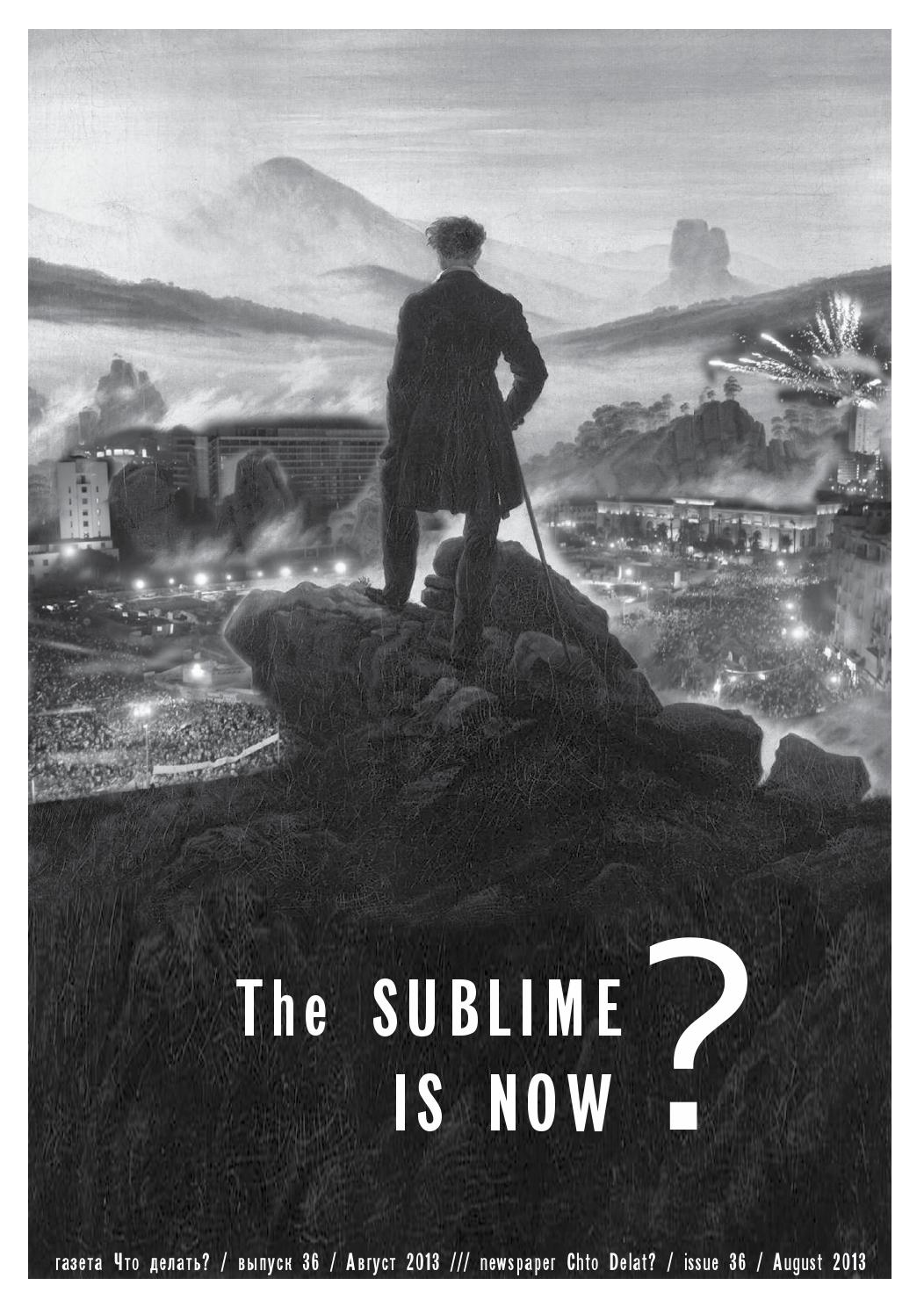
The Sublime is Now?
Issue 36, August 2013
HTML, PDF
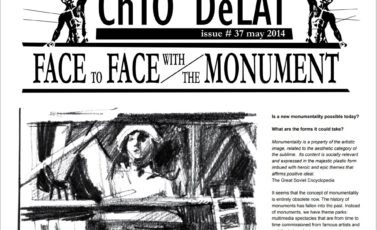
Face to Face with the Monument
Issue 37, May 2014
HTML, PDF
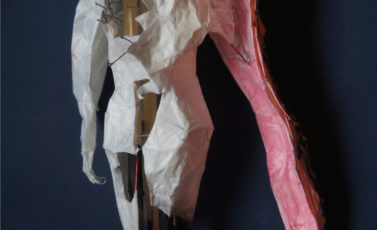
Time Capsule: Artistic Report on Catastrophe and Utopia
Issue 38, Nov 2014
HTML, PDF
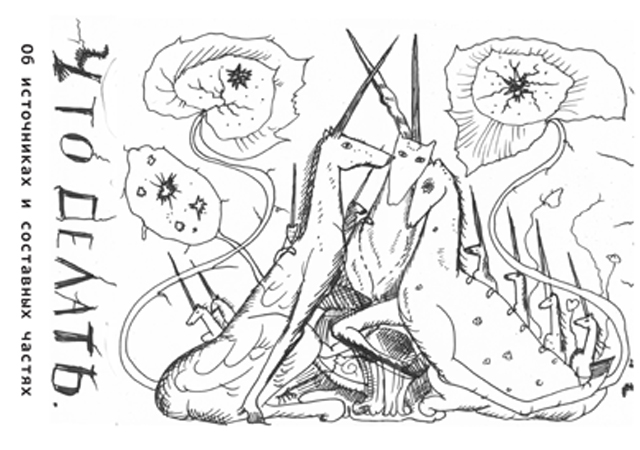
On the sources and currents of Chto Delat
Issue 39, Mar 2015
Issuu
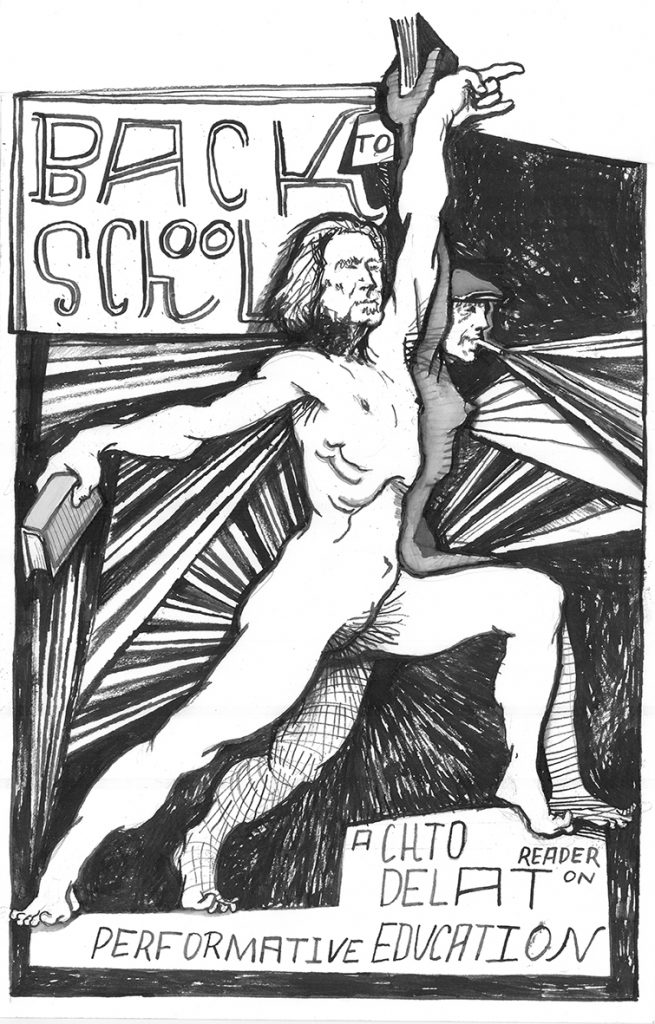
Back to School: Reader on Performative Education
Jul 2015
PDF
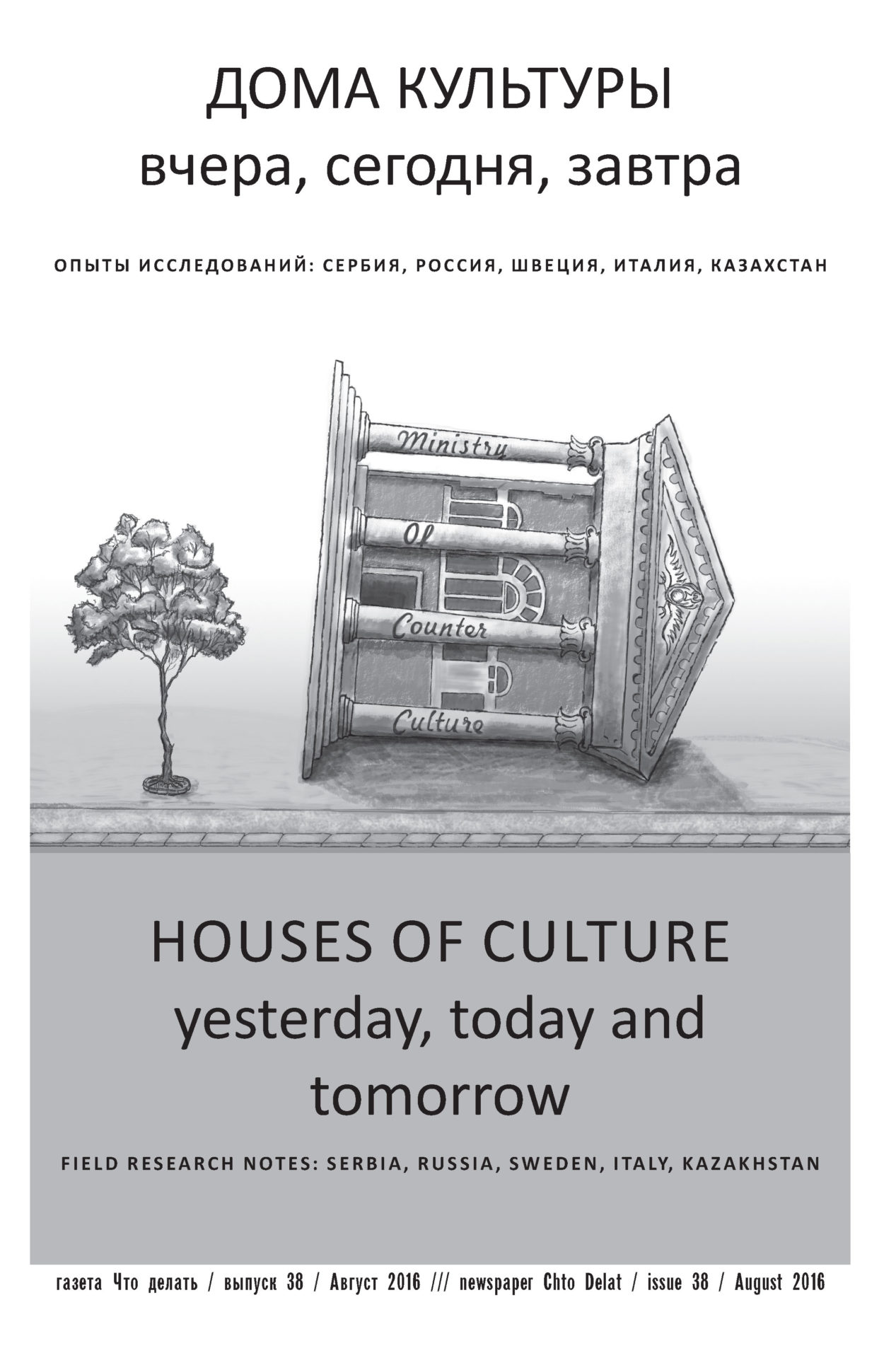
Houses of Culture
Issue 38, Aug 2016
HTML, PDF
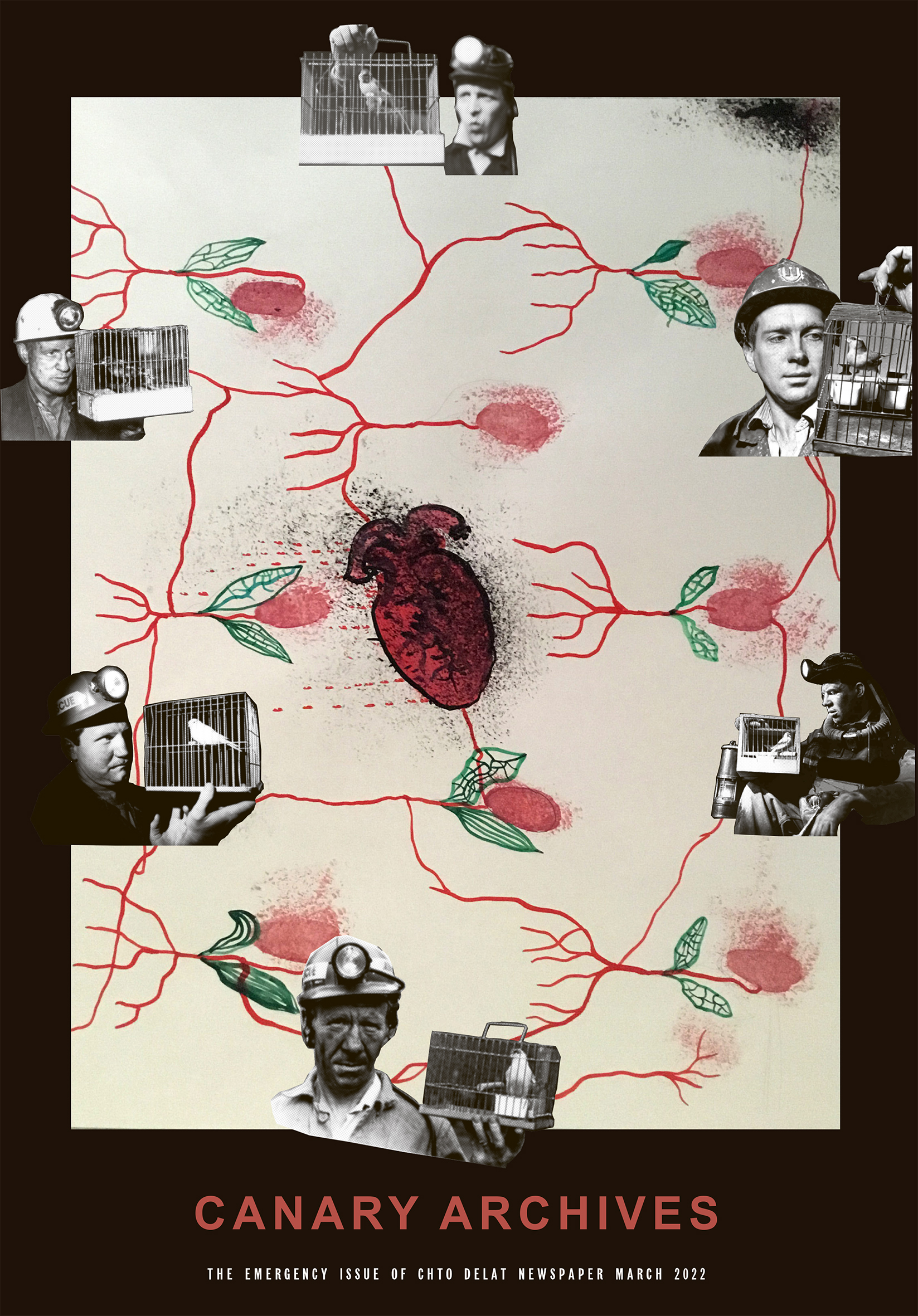
Canary Archives
Emergency issue, Mar 2022
HTML, PDF
Published under Creative Commons license.
(links updated on 2024-02-19)
Comment (0)
